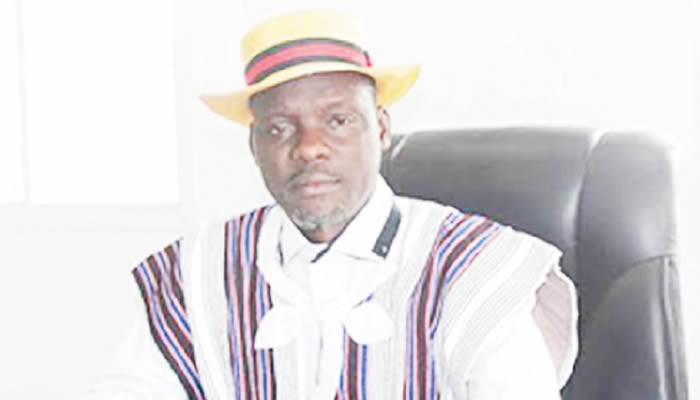The Niger Delta region, the heart of Nigeria’s oil production, faces a stark paradox. While contributing over 80% of the nation’s crude oil revenue, a significant portion of its population, particularly those residing in coastal and riverine communities, remains isolated due to a critical lack of accessible road infrastructure. This infrastructural deficit has far-reaching consequences, trapping communities in a cycle of poverty, limiting access to essential services like healthcare and education, and actively discouraging private investment that could spur much-needed economic growth. The absence of proper roads acts as a barrier to development, hindering the region’s potential and perpetuating a sense of marginalization among its inhabitants. This situation, further compounded by allegations of corruption and mismanagement of funds allocated for regional development, underscores the urgent need for a shift in focus towards sustainable and impactful infrastructural development in the Niger Delta.
Mulade Sheriff, the National Coordinator of the Centre for Peace and Environmental Justice, has issued a fervent appeal to the Federal Government, urging them to prioritize the construction of bridges and roads connecting strategic locations in the Niger Delta’s coastal communities to urban centers. He argues that such projects would not simply improve the lives of those residing in the oil-rich region but would also significantly bolster national revenue by facilitating economic activities and stimulating investment. Mulade’s call echoes the concerns of development experts who recognize the critical role of infrastructure in fostering economic growth, reducing poverty, and improving the overall quality of life. His appeal arrives amidst the backdrop of the Federal Government’s unveiling of plans for a massive upgrade of the Third Mainland Bridge in Lagos, a project with a substantial budget allocation. While commending this initiative, Mulade emphasizes the need for a comparable commitment to addressing the long-neglected infrastructure needs of the Niger Delta.
Mulade’s advocacy highlights the disparity in infrastructural development between the Niger Delta and other regions of Nigeria. While recognizing the importance of the Third Mainland Bridge upgrade, he emphasizes the need for a comparable investment in the Niger Delta, a region bearing the brunt of oil exploration and exploitation yet receiving disproportionately little in terms of infrastructural development. He argues that the Niger Delta, given its crucial contribution to the nation’s economy, deserves a similar level of attention and investment in infrastructure to stimulate economic growth, create jobs, and improve the overall well-being of its inhabitants. This disparity in development further fuels the sentiment of marginalization among the people of the Niger Delta, who witness significant investment poured into other regions while their own communities remain underserved and underdeveloped.
Specifically, Mulade points to projects like the Warri–Gbaramatu–Escravos Bridge, the Forcados–Ogulagha Bridge, and the extension of the Ayakoroma Bridge to Burutu Forcados Terminal as critical for opening up the coastal belt to infrastructural development, trade, and investment. These projects, he emphasizes, are not merely isolated initiatives but crucial links that would facilitate connectivity, promote economic activity, and ultimately contribute to the sustainable development of the region. The completion of these projects would stimulate trade by easing the transportation of goods and services, attract investment by enhancing accessibility, and create employment opportunities, thereby improving the economic prospects of the region and reducing its dependence on oil revenue.
The prolonged delays and often outright abandonment of vital infrastructure projects in the Niger Delta, such as the East-West Road and the Ayakoroma Bridge exemplify the historical neglect of the region. These delays, often attributed to corruption, mismanagement, and a lack of political will, not only hinder development but also perpetuate a cycle of poverty and marginalization. The East-West Road, envisioned as a critical artery connecting the region, remains incomplete, hampering economic activity and isolating communities. Similarly, the Ayakoroma Bridge, meant to improve access to vital resources and services, has also experienced significant delays, underscoring the chronic lack of attention to the infrastructural needs of the region.
The continuous marginalization of the Niger Delta, despite its immense contribution to the nation’s wealth, has led to growing unrest and calls for greater investment in its development. Activists like Mulade have consistently advocated for the prioritization of these key bridge and road links, arguing that such investments would not only stimulate trade and reduce restiveness but also stem the tide of youth migration to already congested urban areas. The lack of opportunities in the Niger Delta compels many young people to seek better prospects elsewhere, contributing to overpopulation and social strains in urban centers. Investing in infrastructure would create jobs and improve living conditions in the Niger Delta, thereby reducing the incentive for young people to migrate and fostering a more balanced and sustainable development across the nation. While the current administration’s “Renewed Hope Agenda” emphasizes national infrastructure development, critics argue that the focus remains disproportionately directed towards non-oil-producing regions, exacerbating the feeling of marginalization in the Niger Delta and underscoring the urgent need for a more equitable distribution of development resources.














